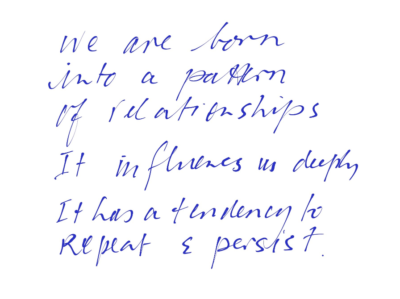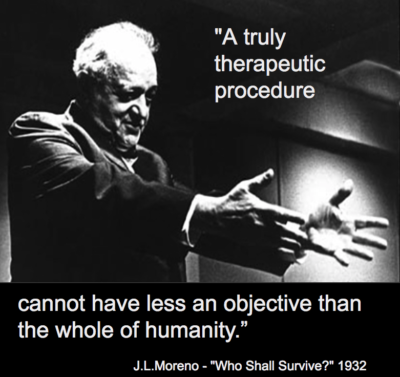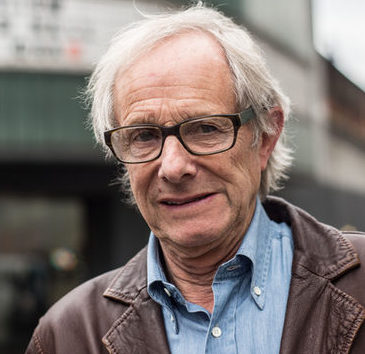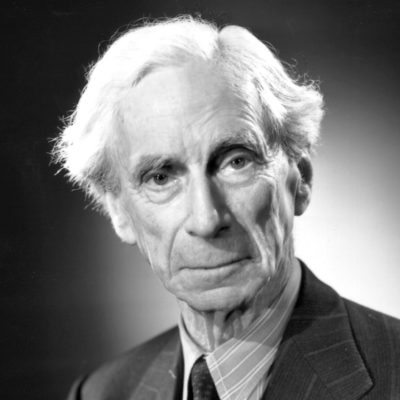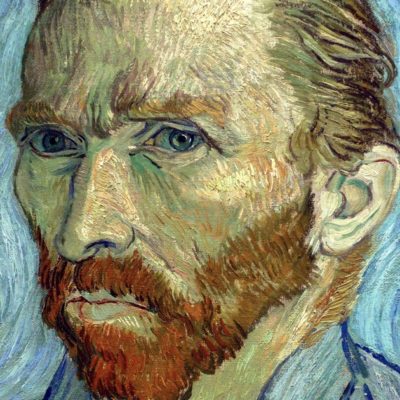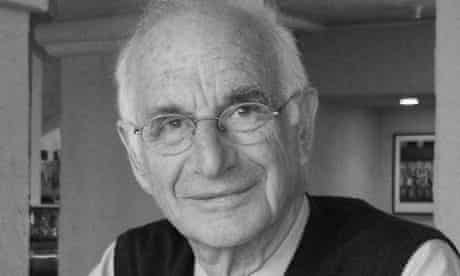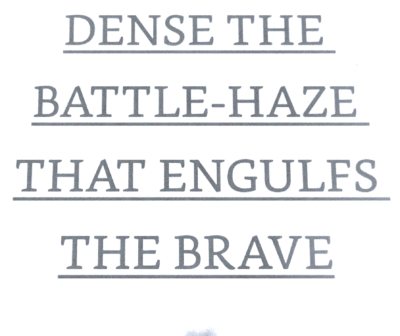Here is a quote from Moreno that has major implications for how we conduct psychodrama in groups or with individuals when they want to work on significant relationships and the other party is not present. Can we trust their representation?
Can a person in a couple relationship role reverse with their partner?
In a group can someone do a drama involving an intimate other who is not there?
These are questions I will be exploring in action with colleagues. in a workshop at the AANZPA conference in Brisbane in January.
Marriage and family therapy for instance, has to be so conducted that the “interpsyche” of the entire group is re-enacted so that all their tele-relations, their co-conscious and co-unconscious states are brought to life. Co-conscious and co-unconscious states are by definition such states which the partners have experienced and produced jointly and which can therefore be only jointly reproduced or re-enacted. A co-conscious or a co-unconscious state can not be the property of one individual only. It is always a common property and cannot be reproduced but by a combined effort. If a re-enactment of such co-conscious or co-unconscious state is desired or necessary, that re-enactment has to take place with the help of all partners involved in the episode. The logical method of such re-enactment a deux is psychodrama. However great a genius of perception one partner of the ensemble might have, he or she can not produce that episode alone because they have in common their co-conscious and co-unconscious states which are the matrix from which they drew their inspiration and knowledge.
Psychodrama Volume 1, 4th edition, page vii
In short…
Couple and family therapy has to be so conducted that the “interpsyche” of the entire group is re-enacted so that all their tele-relations, their co-conscious and co-unconscious states are brought to life. Thus the interpsyche involves states which the partners produced jointly and which can therefore be only jointly reproduced, by a combined effort. The logical method to re-enact an episode in the life of a couple is psychodrama. However great a genius of perception one partner may be, he or she can not produce that episode alone because they have in common their co-conscious and co-unconscious states which are the matrix from which they draw their inspiration and knowledge.
The logical method of such re-enactment a deux is psychodrama.
Later — Friday, 22 December, 2017
Just noticed this quote fro Marshall Rosenberg:
It may be most difficult to empathize with those we are closest to.
Moreno was not alone in noticing this phenomena

